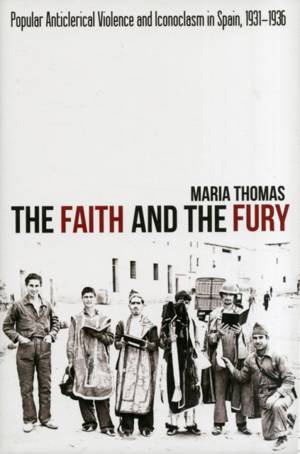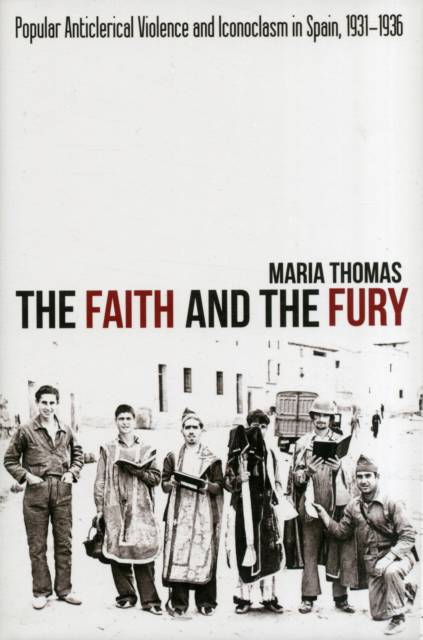
Bedankt voor het vertrouwen het afgelopen jaar! Om jou te bedanken bieden we GRATIS verzending (in België) aan op alles gedurende de hele maand januari.
- Afhalen na 1 uur in een winkel met voorraad
- In januari gratis thuislevering in België
- Ruim aanbod met 7 miljoen producten
Bedankt voor het vertrouwen het afgelopen jaar! Om jou te bedanken bieden we GRATIS verzending (in België) aan op alles gedurende de hele maand januari.
- Afhalen na 1 uur in een winkel met voorraad
- In januari gratis thuislevering in België
- Ruim aanbod met 7 miljoen producten
Zoeken
€ 132,95
+ 265 punten
Omschrijving
The five-year period following the proclamation of the Republic in April 1931 was marked by physical assaults upon the property and public ritual of the Spanish Catholic Church. These attacks were generally carried out by rural and urban anticlerical workers who were frustrated by the Republic's practical inability to tackle the Church's vast power. On 17- 18 July 1936, a right-wing military rebellion divided Spain geographically, provoking the radical fragmentation of power in territory which remained under Republican authority. The coup marked the beginning of a conflict which developed into a full-scale civil war. Anticlerical protagonists, with the reconfigured structure of political opportunities working in their favour, participated in an unprecedented wave of iconoclasm and violence against the clergy. During the first six months of the conflict, innumerable religious buildings were destroyed and almost 7,000 religious personnel were killed. To date, scholarly interpretations of these violent acts were linked to irrationality, criminality and primitiveness. However, the reasons for these outbursts are more complex and deep-rooted: Spanish popular anti-clericalism was undergoing a radical process of reconfiguration during the first three decades of the twentieth century. During a period of rapid social, cultural and political change, anticlerical acts took on new -- explicitly political -- meanings, becoming both a catalyst and a symptom of social change. After 17--18 July 1936, anticlerical violence became a constructive force for many of its protagonists: an instrument with which to build a new society. This book explores the motives, mentalities and collective identities of the groups involved in anti-clericalism during the pre-war Spanish Second Republic and the Spanish Civil War, and is essential reading for all those interested in twentieth-century Spanish history. Published in association with the Canada Blanch Centre for Contemporary Spanish Studies.
Specificaties
Betrokkenen
- Auteur(s):
- Uitgeverij:
Inhoud
- Aantal bladzijden:
- 272
- Taal:
- Engels
- Reeks:
Eigenschappen
- Productcode (EAN):
- 9781845195465
- Verschijningsdatum:
- 24/09/2012
- Uitvoering:
- Hardcover
- Formaat:
- Genaaid
- Afmetingen:
- 155 mm x 229 mm
- Gewicht:
- 566 g

Alleen bij Standaard Boekhandel
+ 265 punten op je klantenkaart van Standaard Boekhandel
Beoordelingen
We publiceren alleen reviews die voldoen aan de voorwaarden voor reviews. Bekijk onze voorwaarden voor reviews.









